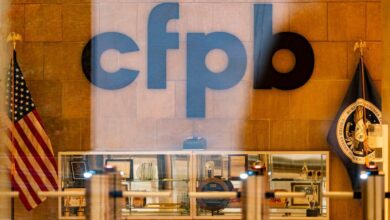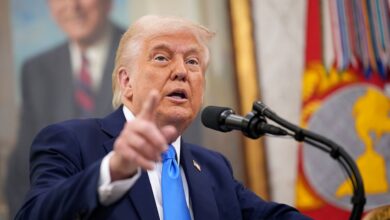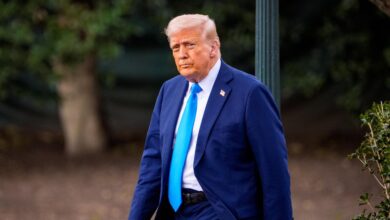Why she may have to raise UK taxes in October

Chancellor Rachel Reeves has outlined her strategy for the UK economy in the Spring Statement, emphasizing her commitment to meeting her self-imposed fiscal rules, which she deems as “non-negotiable.” However, despite the positive tone, concerns have been raised regarding the feasibility of achieving these targets without resorting to tax increases.
The primary concern stems from the limited fiscal headroom available to the government. Initially, the Office for Budget Responsibility projected a surplus of £9.9 billion, providing some breathing space. However, a rise in government borrowing costs eroded this margin, prompting the need for significant welfare cuts and expenditure reductions to restore it. While £10 billion may seem substantial, it represents a small fraction of the overall economy, with historical averages indicating a significantly larger cushion for chancellors.
Richard Hughes of the OBR highlighted the vulnerability of this narrow margin, citing potential risks such as escalating trade wars, growth forecast downgrades, or interest rate hikes that could erode the fiscal headroom. The unpredictability of economic forecasts further complicates the situation, with unforeseen events like wars or pandemics capable of derailing projections.
The recent announcement of 25% tariffs on cars and car parts by US President Donald Trump adds another layer of uncertainty. While Reeves acknowledged the detrimental impact of these tariffs on the UK economy, efforts are being made to avert their imposition. The OBR estimates that these tariffs could directly affect goods equivalent to 0.2% of GDP, underscoring the ripple effects of global trade tensions.
The broader geopolitical landscape, including ongoing conflicts like the war in Ukraine and fluctuating defense spending, contributes to the overall climate of uncertainty. Domestically, businesses are bracing for increased operating costs, with impending rises in National Insurance contributions, the National Living Wage, and business rates. This uncertainty has prompted some firms to delay investment decisions, potentially leading to price hikes or job cuts that could dampen economic growth.
In light of these challenges, Reeves faces a dilemma of either implementing further spending cuts or raising taxes to adhere to her fiscal rules. While the government has already announced significant welfare reductions and administrative streamlining measures, the feasibility of additional spending cuts remains limited. Speculation abounds regarding potential tax hikes in the upcoming months, with experts warning of the economic repercussions of prolonged uncertainty.
Reeves has refrained from ruling out tax increases, emphasizing the need to balance opportunities and risks in the current economic climate. The delicate balance between meeting fiscal targets and stimulating economic growth poses a formidable challenge for the chancellor as she navigates the complex landscape of economic uncertainties.





